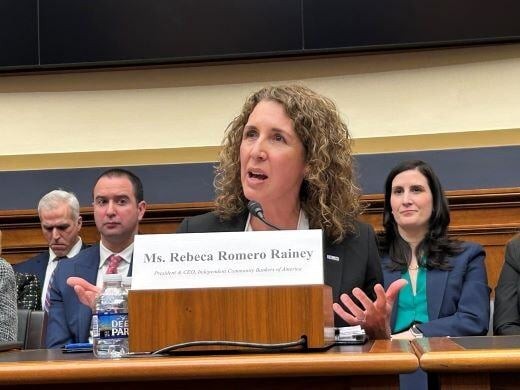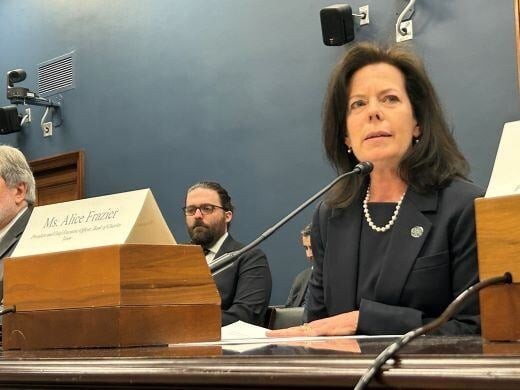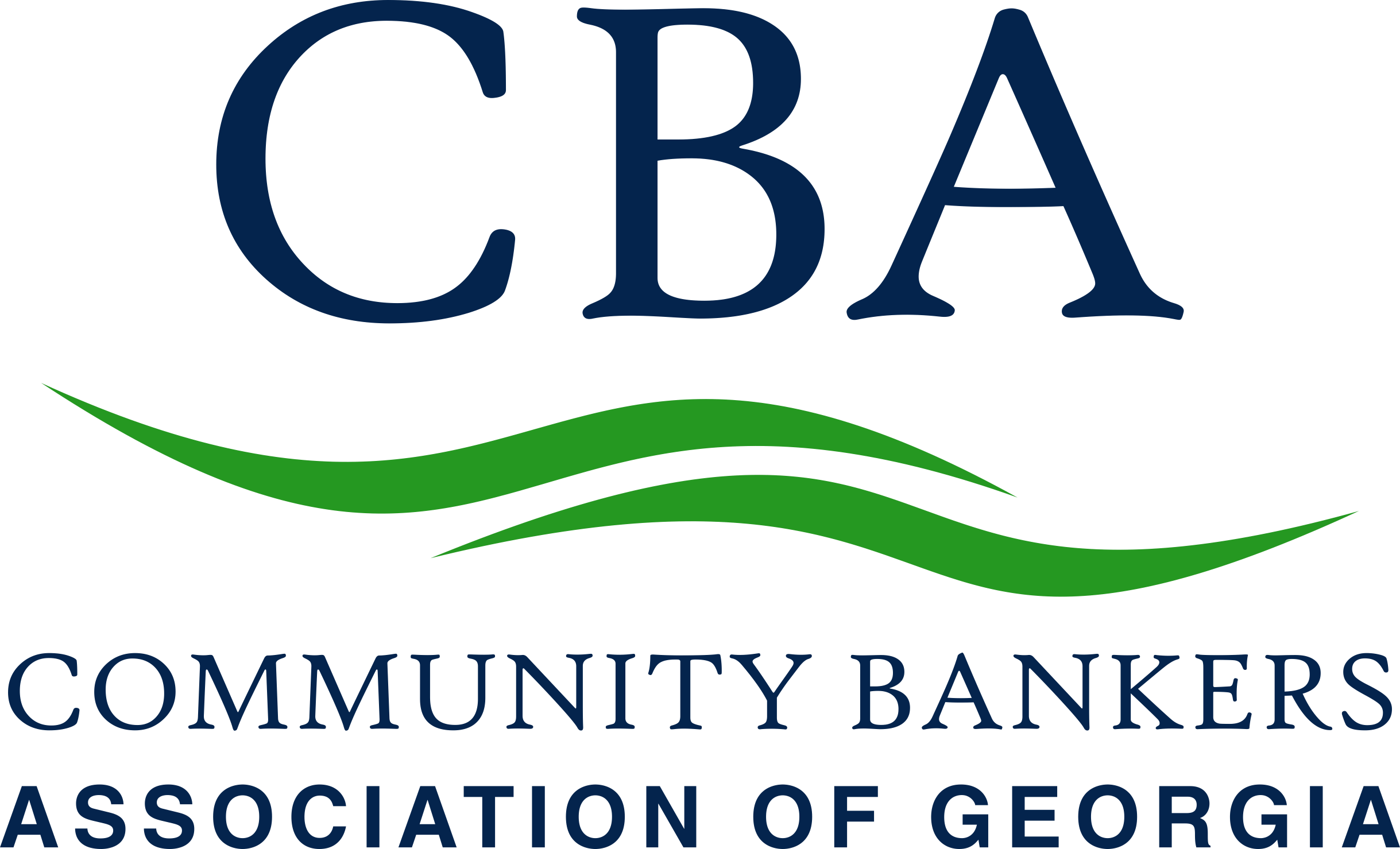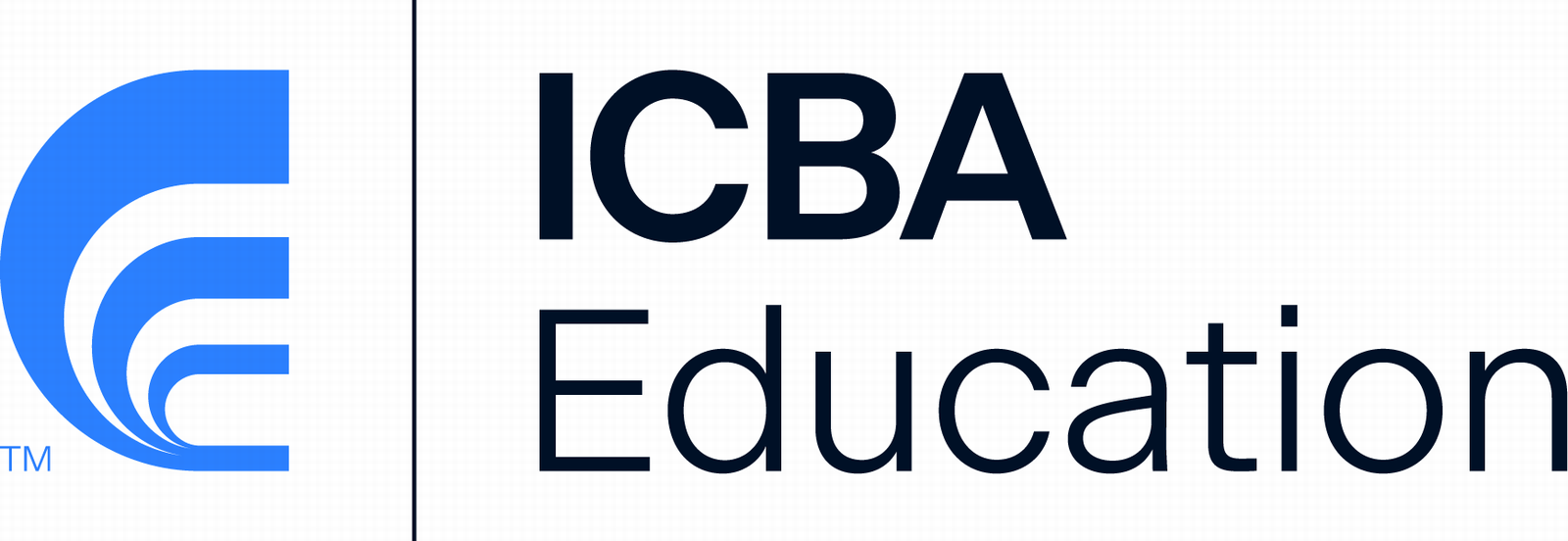Advocacy Update 2025 - Legislative Days 10-13
Legal Reform Package in Committee Monday

The Senate Judiciary Committee is expected to hold its first hearing on Governor Brian Kemp’s sweeping legal reform package on Monday, February 10 at 4pm. Grassroots advocacy is essential to the passage of meaningful reform. Georgia residents and business owners impacted by the current litigation environment are encouraged to show their support by attending Monday’s hearing or contacting their legislators via JusticeNotJackpots.com.
There was a palpable uptick in activity this week, especially at the committee level. As more measures come out of committee and are eligible for consideration by the full chambers, debate calendars in the House and Senate will continue to grow. More than a quarter of the 2025 session is now complete, and the critical Crossover Day deadline is just a month away.
De-banking or Fair Access to Financial Services

SB 57 was introduced by Sen. Blake Tillery (R), Vidalia on January 30. The bill prohibits discrimination in the provision of essential services, which is defined as financial services or utility services. “Financial institution” means a bank or credit union that has more than $1 billion in assets and any affiliate or subsidiary of such bank or credit union. The bill was assigned to the Senate Judiciary Committee.
This week, CBA and the League of Credit Union Affiliates worked with Sen. Tillery and members of the Senate Judiciary Committee to amend the bill to protect community banks and small credit unions by:
1. Increasing the threshold to protect financial institutions.
2. Ensuring banks and credit unions are not asked to violate federal law to comply with SB 57, particularly regarding the disclosure of information to customers and members.
While CBA also has significant concerns with the private right of action created by SB 57, Sen. Tillery is committed to that provision.
So called “de-banking” legislation is being discussed in multiple states and at the federal level. On February 5, the US Senate Committee on Banking, Housing, and Urban Affairs held a meeting on this topic. In this meeting, it was stated that just four national banks (Bank of America, JP Morgan, Wells Fargo, and Citibank) account for half of all de-banking complaints filed at the CFPB. President Trump criticized Bank of America for its de-banking practices, and it has become a focus of the new administration.
CBA will continue to remain engaged on this topic to ensure that community banks’ concerns are mitigated.
Active Measures: Banking

Department Housekeeping Bill (HB 15)
Rep. Bruce Williamson, R—Monroe
Bill passed by the House Banks & Banking Committee on Feb-5
HB 15 is the Department of Banking and Finance’s annual housekeeping bill. The Association has worked closely with the Department since August when it initially released a draft of the bill. These amendments are intended to streamline regulations, improve efficiency, and reduce regulatory burdens across the various sectors regulated by the Georgia Department of Banking and Finance.
Active Measures: General Business

Judicial
First Offender Act Sentences (HB 162)
Rep. Leesa Hagan, R—Vidalia
Bill passed by the House Judiciary Non-Civil Hong Subcommittee on Feb-5
HB 162 provides for the restriction and seal of First Offender Act sentences until such status is revoked.
Open Records Requests (SB 12)
Sen. Frank Ginn, R—Danielsville
Bill passed as a substitute by the Senate Judiciary Cmte on Feb-6
SB 12 revises the state’s Open Records Request statutes relating to documents and records in the possession of private persons or entities and the judicial enforcement of such requests. The Senate Judiciary Committee clarified who receives the open records request.
General Business
Pawnbrokers (HB 110)
Rep. Josh Bonner, R—Fayetteville
Bill passed by the House Defense & Veterans Affairs Cmte on Feb-4
HB 110 prohibits pawnbrokers from making title pawns with covered borrowers, which is defined as active- duty service members, active guard and reserve duty service members, and their dependents. This is already federal law, but HB 110 allows state enforcement.
New Legislation of Interest

Banking Related
Mortgage Trigger Leads (HB 240)
Rep. Noel Williams, R—Cordele
Assigned to the House Banks & Banking Committee on Feb-5
HB 240 bars credit reporting agencies from selling consumers’ contact information when they apply for a residential mortgage. A similar bill (HB 1040) was introduced last session by Rep. Scott Hilton.
Convenience Fees for Payment by Electronic Means (HB 241)
Rep. Trey Rhodes, R—Greensboro
Assigned to the House Banks & Banking Cmte on Feb-5
HB 241 revises provisions regarding convenience fees for payment by electronic means. A lender may collect a non-refundable convenience fee from any person electing to utilize an option of payment by electronic means, and this applies to any type of loan that is made. Such convenience fees shall be in an amount that represents the actual cost to a lender or merchant; provided, however, that the convenience fee does not exceed the average of the actual cost incurred for a specific type of payment made.
Georgia Hemp Farming Act (HB 265)
Rep. Steven Sainz, R—St. Mary’s
Assigned to the House Agriculture & Consumer Affairs Cmte on Feb-5
HB 265 provides limits on the total concentration of THC and other intoxicating cannabinoids in consumable hemp products. It revises provisions concerning the certificate of analysis applicable to consumable hemp products.
Title Pawn (HB 300)
Rep. Matt Dubnik, R—Gainesville
Assigned to the House Banks & Banking Cmte on Feb-6
HB 300 revises provisions relating to pawnbrokers to exclude motor vehicle certificates of title from pawn transactions.
Taxation
Ad Valorem Tax (HB 260)
Rep. Matt Reeves, R—Duluth
Assigned to the House Ways & Means Cmte on Feb-5
HB 260 increases from $2,000 to $5,000 the amount of the state-wide homestead exemption from certain ad valorem taxes.
Judicial
Remote Online Notaries (HB 289)
Rep. Joseph Gullett, R—Dallas
Assigned to the House Judiciary Committee on Feb-6
HB 289 provides provisions for remote online notary. This is the same language within 2021’s HB 334 and received strong bipartisan support in the House and Senate; however, the bill went to a conference committee, and ultimately failed to cross the finish line. CBA is grateful to Rep. Gullett that the changes advocated for in 2021 are preserved in the current bill.
The Time Served Act of 2025 (HB 301)
Rep. Carl Gilliard, D—Savannah
Assigned to the House Judiciary Non-Civil Committee on Feb-6
HB 301 provides for the automatic restriction of criminal history records for convictions of certain misdemeanors and felonies five years after the completion of the sentence.
Property
Protect the Dream Act (HB 305)
Rep. Phil Olaleye, D—Atlanta
Assigned to the House Governmental Affairs Cmte on Feb-6
HB 305 prohibits certain entities from acquiring an interest in a single-family dwelling. Prohibited business means any partnership, corporation, or real estate investment trust that manages funds pooled from investors, is a fiduciary to such investors, has a net value or assets under management on any day during a taxable year, and hold a total net value in all assets of $6,250,000 or holds interests in at least 25 single-family dwellings in a single county.
General Business
Insurance (HB 220)
Rep. Martin Momtahan, R—Dallas
Assigned to the House Insurance Cmte on Feb-4
HB 220 provides for an insurer under a liability insurance policy to pay a third party and the senior lienholder under certain circumstances.
Seed-Capital Fund (HB 286)
Rep. Yasmin Neal, D—Jonesboro
Assigned to the House Higher Education Cmte on Feb-6
HB 286 creates a subfund to provide startup capital to certain small businesses that are majority owned by students or graduates of a small business program of study of the Technical College System of Georgia.
ICBA Testifies at Two Congressional Hearings
At congressional hearing, Romero Rainey urges regulatory transformation

At the first House Financial Services Committee hearing of the new Congress, ICBA President and CEO Rebeca Romero Rainey called on lawmakers to transform the regulatory environment for community banks to promote locally based economic growth.
Details: At the “Make Community Banking Great Again” hearing, Romero Rainey cited the importance of the industry’s outsized small-business and agricultural lending and outlined policy proposals from ICBA’s “Repair, Reform, and Thrive” plan and open letter to the 119th Congress.
Key Policies: Among the policy priorities in her testimony, Romero Rainey called on Congress to advance tiered regulations through a comprehensive update of regulatory thresholds, provide relief from the Consumer Financial Protection Bureau’s 1071 rule, promote the formation of de novo community banks, and support equivalent regulation and taxation for credit unions and Farm Credit System lenders.
Access: Romero Rainey’s full testimony is available on ICBA’s website, and the hearing can be viewed on the committee’s website.
ICBA urges regulatory and tax relief at House Small Business Committee hearing

In separate testimony on Wednesday at the first House Small Business Committee hearing of the 119th Congress, ICBA called on lawmakers to advance regulatory and tax relief that will further enhance small-business lending.
Details: At the “Hope on the Horizon” hearing, ICBA Vice Chair Alice Frazier—the president and CEO of Bank of Charles Town, W.Va.—advocated policies to spur economic growth and job creation in local communities.
Expanding Capacity: “While we are ready to lend today to all qualified borrowers, our capacity could be yet further enhanced by regulatory and tax relief that would allow us to direct more resources toward helping our customers,” Frazier said.
More: Frazier encouraged policymakers to pass Chairman Roger Williams’ 1071 Repeal to Protect Small Business Lending Act, preserve and expand a pro-growth tax environment by extending Section 199A of the Tax Cuts and Jobs Act for pass-through business, and more.
Access: Frazier’s complete testimony is available on the ICBA website, and video of the hearing is posted on YouTube.


